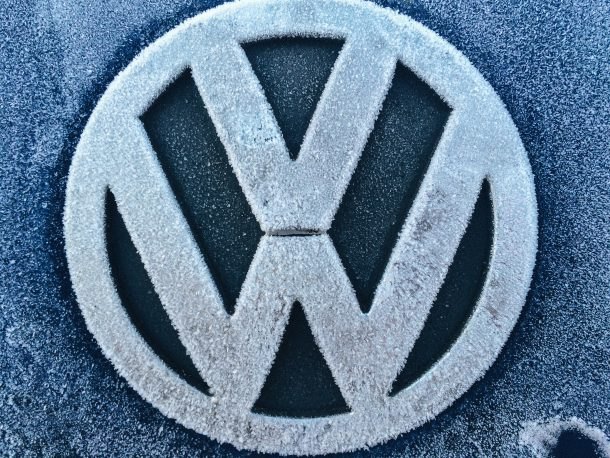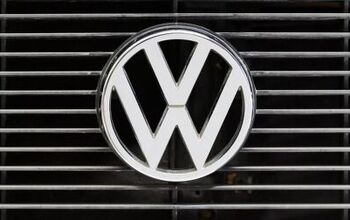Volkswagen Ditches Diesel Technology in the United States

Volkswagen will no longer bring diesel-powered vehicles into the United States, ending speculation that the company may have simply placed the technology on hiatus while the emissions-cheating snafu remained fresh in American minds.
Initially reported by Handelsblatt and confirmed by Reuters via a VW spokesman, the announcement was made by Volkswagen CEO Herbert Diess. “We currently anticipate that we will no longer offer new diesel vehicles in the United States,” Diess explained.
With diesels once making up a fourth of VW’s U.S. sales, it is unlikely the decision came easy. After being slapped with a $14.7 billion settlement resulting from the emissions-cheating scandal, this was likely the prudent move. However, there was plenty of forewarning leading up to the final decision.
At last week’s Los Angeles Auto Show, Volkswagen Group of America CEO Hinrich Woebcken told reporters he didn’t believe diesel would ever “come back in the same magnitude as we’ve seen it up to now.”
“Emissions standards in following years are getting tougher and tougher,” Woebcken said. “Why don’t you put the money and investments … to comply with these standards, why don’t you put the money on the spot where the future is?”
Volkswagen probably knows the limitations of diesel technology and emissions compliance better than anyone at this point. Although we’ll have to wait and see if it can predict the automotive future.
Europe, which doesn’t impose the same strict regulations on nitrogen oxide emissions as the United States does, will continue to see VW-produced diesels. Meanwhile, North America is expected to see an influx of Volkswagen SUVs and a hard push from the company to build electric vehicles — which is that “spot” Woebcken thinks the future may be.
That future includes nineteen sport utility vehicles by 2020 and one million EVs sold by 2025. Those goals are extremely ambitious, considering the company’s recent hardships and VW’s CEO, Matthias Müller, being so openly dubious of public reaction to EVs in Europe.
“There is no supply shortage, there is a demand shortage,” Müller said of electric cars. “On one hand, many Germans think and act green, but when it comes to electric mobility, they wrinkle their noses. I have a hard time understanding this phenomenon.”
It sounds as if the United States may have to do some of the heavy lifting to help Volkswagen accomplish its million-unit sales goal.
With VW pulling diesel motors out of North America entirely and Mercedes-Benz considering it, that leaves Chevrolet and Mazda as the primary torchbearers. Volkswagen said it was considering allowing Audi to continue on with diesel engines, but that it would limit production solely to the Q7.
In an ironic twist, the upcoming VW Atlas SUV, built in Chattanooga, Tennessee, will offer a diesel variant solely for Russian customers.

A staunch consumer advocate tracking industry trends and regulation. Before joining TTAC, Matt spent a decade working for marketing and research firms based in NYC. Clients included several of the world’s largest automakers, global tire brands, and aftermarket part suppliers. Dissatisfied with the corporate world and resentful of having to wear suits everyday, he pivoted to writing about cars. Since then, that man has become an ardent supporter of the right-to-repair movement, been interviewed on the auto industry by national radio broadcasts, driven more rental cars than anyone ever should, participated in amateur rallying events, and received the requisite minimum training as sanctioned by the SCCA. Handy with a wrench, Matt grew up surrounded by Detroit auto workers and managed to get a pizza delivery job before he was legally eligible. He later found himself driving box trucks through Manhattan, guaranteeing future sympathy for actual truckers. He continues to conduct research pertaining to the automotive sector as an independent contractor and has since moved back to his native Michigan, closer to where the cars are born. A contrarian, Matt claims to prefer understeer — stating that front and all-wheel drive vehicles cater best to his driving style.
More by Matt Posky
Latest Car Reviews
Read moreLatest Product Reviews
Read moreRecent Comments
- Probert They already have hybrids, but these won't ever be them as they are built on the modular E-GMP skateboard.
- Justin You guys still looking for that sportbak? I just saw one on the Facebook marketplace in Arizona
- 28-Cars-Later I cannot remember what happens now, but there are whiteblocks in this period which develop a "tick" like sound which indicates they are toast (maybe head gasket?). Ten or so years ago I looked at an '03 or '04 S60 (I forget why) and I brought my Volvo indy along to tell me if it was worth my time - it ticked and that's when I learned this. This XC90 is probably worth about $300 as it sits, not kidding, and it will cost you conservatively $2500 for an engine swap (all the ones I see on car-part.com have north of 130K miles starting at $1,100 and that's not including freight to a shop, shop labor, other internals to do such as timing belt while engine out etc).
- 28-Cars-Later Ford reported it lost $132,000 for each of its 10,000 electric vehicles sold in the first quarter of 2024, according to CNN. The sales were down 20 percent from the first quarter of 2023 and would “drag down earnings for the company overall.”The losses include “hundreds of millions being spent on research and development of the next generation of EVs for Ford. Those investments are years away from paying off.” [if they ever are recouped] Ford is the only major carmaker breaking out EV numbers by themselves. But other marques likely suffer similar losses. https://www.zerohedge.com/political/fords-120000-loss-vehicle-shows-california-ev-goals-are-impossible Given these facts, how did Tesla ever produce anything in volume let alone profit?
- AZFelix Let's forego all of this dilly-dallying with autonomous cars and cut right to the chase and the only real solution.


































Comments
Join the conversation
Still waiting for the other shoe to drop on MB and BMW...also the FCA 3.0T VM Motori in the Jeep GC and my personal daily driver RAM 1500 EcoDiesel...I'd really be surprised based on some of the real world testing that defeat device or not, these non-VW diesels are putting out more NOX than specified. Nothing official to base that on (and personally the RAM EcoDiesel seems to run really clean) but I imagine that eventually, diesels in North America for 'non-commercial' use will get phased out...Just looks like the direction we are heading.
Diesel is a great equalizer when your typical German gasser equivalent requires over priced (at least here in NY) Premium fuel. A shame.